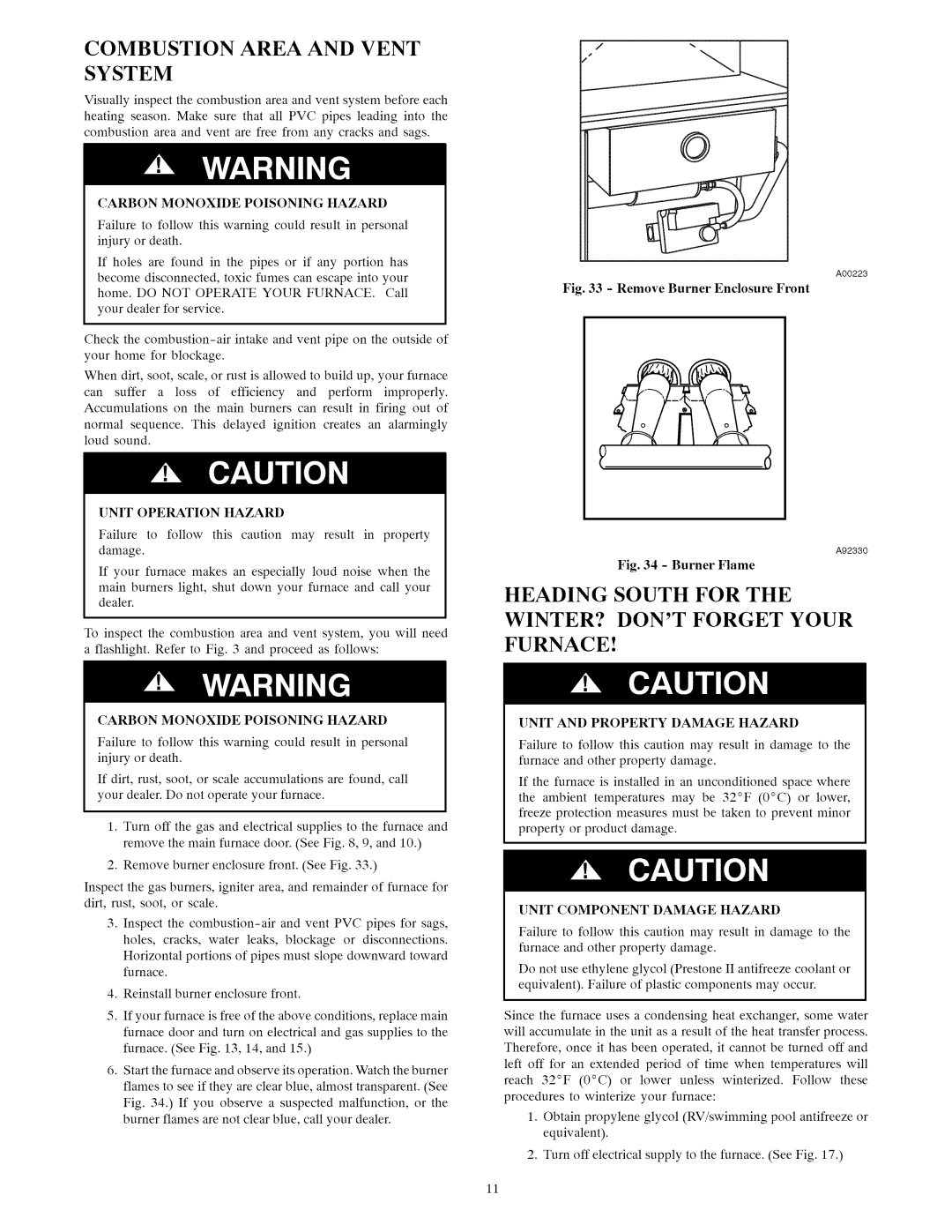58MVC specifications
The Carrier 58MVC is a significant advancement in residential heating and cooling solutions, harnessing the power of innovative technologies to deliver optimal comfort and energy efficiency. Designed and engineered by Carrier, a leader in HVAC systems, the 58MVC model stands out due to its advanced features and reliable performance.One of the key characteristics of the Carrier 58MVC is its variable-speed gas furnace operation. This technology allows the unit to adjust its speed based on the heating demands of the home. As a result, homeowners experience consistent temperature control and reduced energy consumption compared to traditional single-stage systems. The variable-speed blower contributes to this efficiency by providing precise airflow, ensuring that every room in the home is evenly heated.
In terms of efficiency ratings, the Carrier 58MVC is equipped with high Annual Fuel Utilization Efficiency (AFUE) ratings, often exceeding 90%. This not only translates to lower energy bills but also indicates that the system is environmentally friendly, contributing to reduced greenhouse gas emissions. The model includes a dual fuel capability, allowing for the integration of heat pumps, enabling homeowners to alternate between gas and electric heating for maximum energy efficiency.
Another noteworthy feature of the 58MVC is its quiet operation. The unit is designed with sound-absorbing materials and a specially engineered blower that minimizes noise levels, making it ideal for any part of the home. The reduced operational noise creates a more pleasant living environment without sacrificing performance.
The Carrier 58MVC also incorporates advanced controls and smart technology, allowing users to monitor and manage their HVAC system remotely. Homeowners can take advantage of Wi-Fi connectivity to control settings from their smartphones or tablets, enhancing convenience and ensuring the system runs efficiently even when they're away.
Durability is yet another aspect of the Carrier 58MVC. Constructed with high-quality materials and designed to withstand the rigors of operation, this furnace features a stainless steel heat exchanger that resists corrosion and extends the lifespan of the unit.
In summary, the Carrier 58MVC gas furnace represents a blend of cutting-edge technology, energy efficiency, and comfort. Its variable-speed operation, high AFUE rating, quiet performance, smart controls, and robust durability make it an excellent choice for homeowners looking to invest in a reliable and efficient heating solution. Whether it's braving the winter chill or managing indoor air quality, the 58MVC stands equipped to deliver exceptional performance year-round.

